Modeling a Theatre Commons
An announcement introducing The Center for the Theatre Commons at Emerson College went out in December 2011. Soon after an artistic director asked, “How does one become a Citizen of the Commons?”A few months later, another theatre practitioner asked, “If the commons is for any and everyone, how can Emerson claim ownership of it?” These are just two of the many fair and excellent questions we have been asked over the past year.
To help us answer these and other questions, we spent some time this past November talking with theatre practitioners that we identified, in different ways, as exemplars of the values, practices, and processes that we associate with the idea of a commons. We asked them to help us understand how our work is being perceived, and to help us clarify our language and communication around this new—Venture? Endeavor? Intervention? (We still aren’t sure exactly what to call it.)
The meeting in November helped us sort out many things, including one critical part of our identity:
We are not The Commons.
We are HowlRound: A Center for the Theatre Commons.
HowlRound exists to model a commons for the theatre.
We’ve been using HowlRound and “the Commons” interchangeably in the last six months, but moving forward we will be using HowlRound as the primary way of referring to ourselves.
This essay and the concentrated effort to more clearly define our purpose come with a debt of gratitude to this group.
We’ve been using HowlRound and “the Commons” interchangeably in the last six months, but moving forward we will be using HowlRound as the primary way of referring to ourselves.
How It’s Been Done
Historically, cultural communities formed around singular leaders and acknowledged expertise. An artist has a vision about what constitutes good theatre. He starts a theatre company. He curates according to his aesthetic. If he’s successful, he convinces others to begin to follow his aesthetic vision and a community forms around that vision. Marketing departments are tasked with selling the vision, and owning the vision becomes the job of everyone inside the institution. This notion of the auteur artistic director is one we’re familiar with, it’s how many of our theatre companies are currently structured.
A commons-based approach to theatre practice looks at this question of vision and ownership from a different direction. It is both an old and a new concept. Not-for-profit, tax-exempt status is actually based in the idea of a commons, the idea that making theatre in communities has a value that cannot be monetized. Zelda Fichandler used the language of the commons in her letter to the Department of the Treasury that defined not-for-profit theatre like libraries and churches and universities—public spaces of cultural value that could never be defined by market value alone. The idea of the commons in 2013 is easier to convey than ever before. The Internet has enabled the proliferation and participation in public, online spaces that have cultural benefits independent of market value.
While (relatively) easy to conceptualize, it’s backwards really, the idea of how a theatre commons comes to life. And the backwardness is both confusing and a reflection of a profound cultural shift in the role of organizations and professionals in shaping cultural consumption.
The platforms that we have created are not goods and services we are delivering to the field. Based on open-sourcing, peer-to-peer processes and community-sourced production strategies their value is only manifested, and they are only meaningful, to the degree that a community of theatre practitioners cocreates them with us.
We didn’t begin with an aesthetic vision. We began with a series of questions that included: What’s the purpose of not-for-profit theatre now? Who gets to participate in answering that question? And finally we asked how our purpose might shift if barriers to participation were minimized? What has bubbled up is the result of your answers to those questions—you being those who have put your hands up to participate in this effort of creating a theatre commons. You are defining the aesthetic and creating the vision.
The results of inviting a community to cocreate a vision for HowlRound have been stunning. We recognize in the voices of hundreds of contributors to the journal, the New Play Map, and the livestreaming tv channel, the power of finding myriad points of intersection, alignment, and common ground in the not-for-profit theatre. The energy coming from you propels us to continue apace.
What follows is a working statement of purpose and principles.
We want your questions and comments.
Your contributions will continue to define our work.
HowlRound—Purpose and Principles
Once we made the choice to produce our plays not to recoup an investment but to recoup some corner of the universe for our understanding and enlargement, we entered the same world as the university, the museum, the church and became, like them, an instrument of civilization. —Zelda Fichandler in a letter to the Department of the Treasury read into the Congressional Record on behalf of the tax-exempt status for American theatre.
Once the gift has stirred within us, it’s up to us to develop it.
—Lewis Hyde, The Gift: Creativity and the Artist in the Modern World
Purpose
HowlRound is committed to modeling a commons-based approach to advancing the health and impact of the not-for-profit theatre.
Statement of Principles
- We reaffirm the original purpose of not-for-profit theatre as our organizing principle, to understand theatre in the context of its communities, artists, and institutions as an instrument of civilization.
- We use a commons-based approach to our work that includes open-sourcing, peer-to-peer processing, and community-sourced knowledge that we share freely through internet-based technologies and in-person gatherings.
- We believe the value of not-for-profit theatre transcends market exchange.
- We embrace the concepts of open innovation and believe that the theatre field will be advanced only through the pooling and sharing of knowledge and resources.
- We, thus, strive to be a space where people can bring the knowledge and resources they are able to share and to use the knowledge and resources they need.
- We engage our role as global citizens and participate in international efforts that align with our commons-based thinking.
Storytelling as our Methodology
This article has reconfigured my ideas about theatre. What I once thought of as a collection of chronological productions, I now see as a living, breathing, sweating, screaming, timeless, and timely reflection of ourselves, our cities, and the craft of giving body to voice and putting soul under spotlight.
—Isaac Treeface commenting on the New Orleans City Series. Every month HowlRound works with local theatre artists to tell their city’s story.
We develop and design our platforms to converse, convene, research, and teach. By doing so, we strive to illuminate the breadth and diversity of the American theatre—and in particular to encourage the telling of stories by new voices, from new angles, and about parts of our field that are not often chronicled.
By doing so, we strive to illuminate the breadth and diversity of the American theatre—and in particular to encourage the telling of stories by new voices, from new angles, and about parts of our field that are not often chronicled.
Converse:
Using our commons-based knowledge platforms, we create, curate, and moderate a conversation around process, practice, and discoveries for advancing the field. All of these tools can be found at HowlRound.com and include the HowlRound New Play Map, #NEWPLAY TV (soon to be renamed HowlRound TV), and weekly Twitter Howls.
Convene:
We make community space for gathering theatremakers around central issues of process, practice, and tension, creating room for new stories (often around old problems). We use commons-based practices for sharing outcomes and encouraging ongoing dialogue.
Research:
We work with commons partners to identify practice-based research opportunities that promote opportunities for commons-based learning around how to better share resources, support artists, and create a healthier infrastructure. We gather field-wide data using the New Play Map.
Teach:
We are developing a commons-based pedagogy that focuses on the role of the creative producer in fostering artist-centered and audience-focused impact in the theatre-making and storytelling for the twenty-first century.
We have created commons-based tools to model field-wide co-creation and open innovation. Our aim is to encourage field-wide:
- Increased sharing of resources.
- Alignments and efficiencies to free more resources for theatremakers and to minimize the cost of infrastructure.
- Value-generation that’s not based solely in market transactions.
- Reduced barriers to access and increased participation in the theatre.
- Creation of new tools and platforms by others.
HowlRound is modeling a commons.
We are not The Commons.
A theatre commons, if it is to be manifested, will need to be co-created with others committed to its existence.

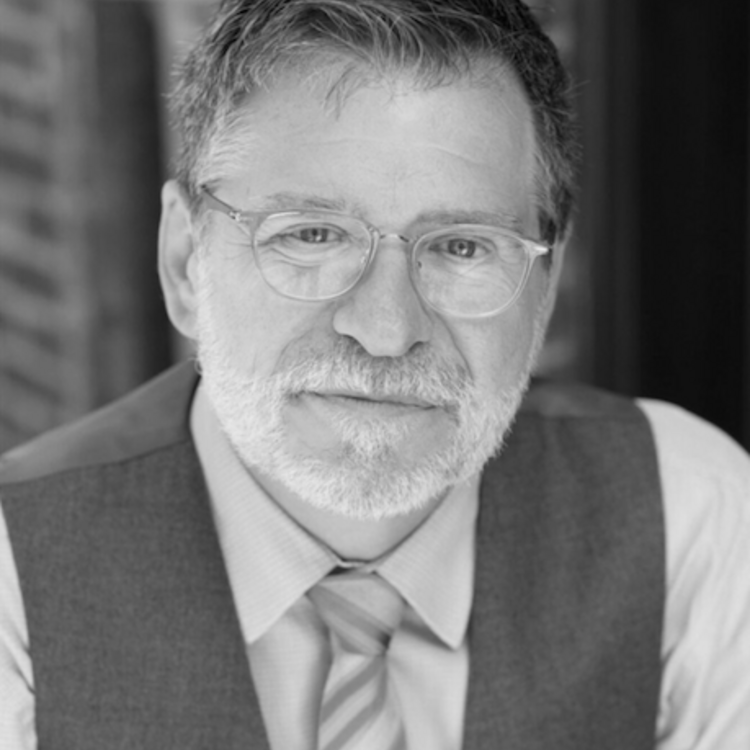
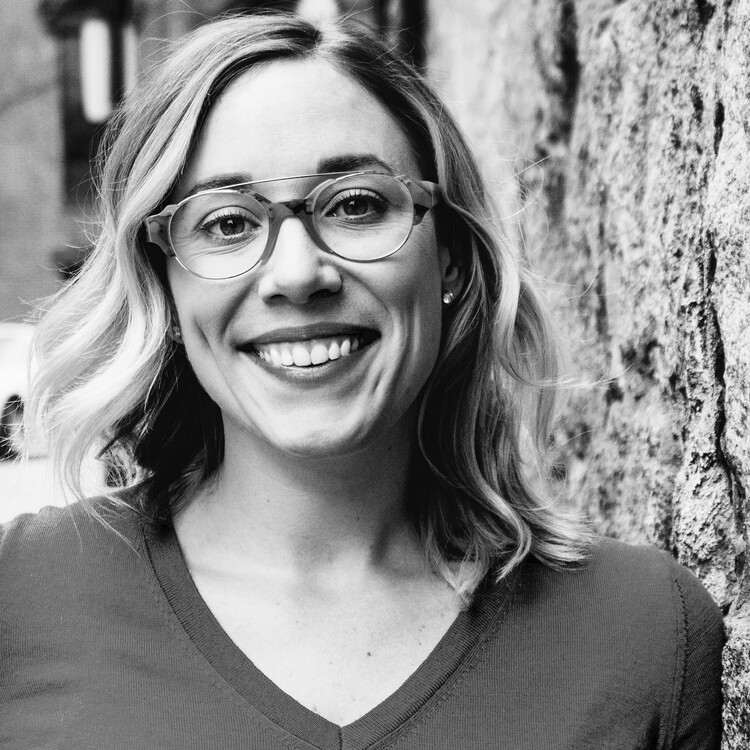
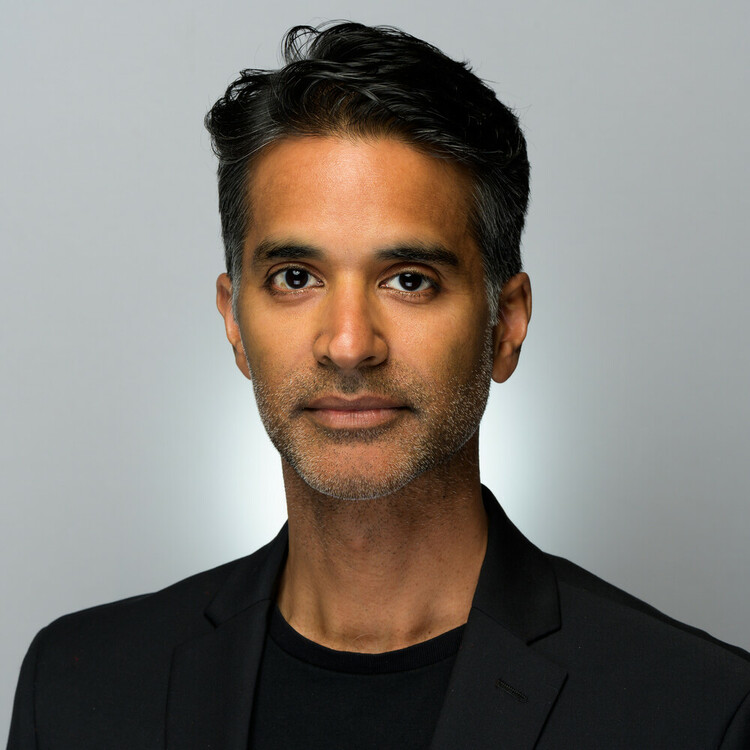
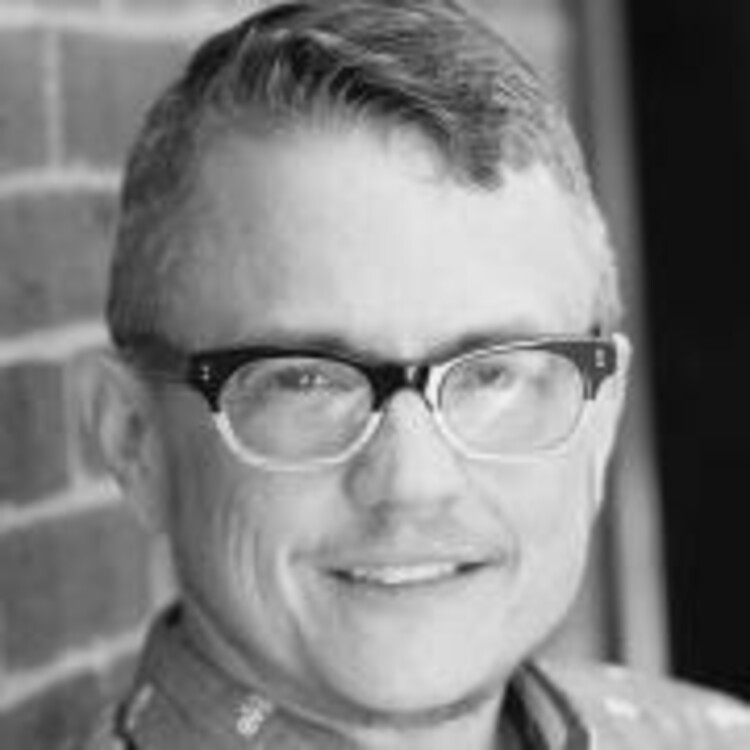

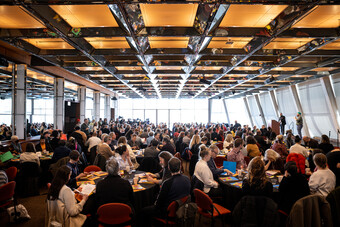





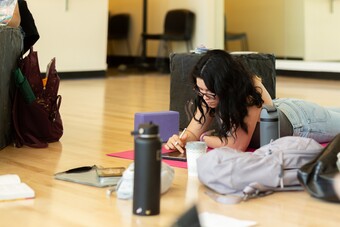

Comments
The article is just the start of the conversation—we want to know what you think about this subject, too! HowlRound is a space for knowledge-sharing, and we welcome spirited, thoughtful, and on-topic dialogue. Find our full comments policy here
Hi Polly and David,
Thanks for this and everything you are doing. Part of the reason I've been of the grid (and late with a promised essay to Howlround) is that I took a new 3/5 time job as the Director of Artist Programs at Pasadena Arts Council, which serves independent artists across all disciplines across LA County.
We are currently incubating 65 projects in theatre, dance, visual arts, music, media and literary arts and I feel that the work that you're doing can be very powerful across the arts. We are hosting CONVENINGS to explore challenges shared across disciplines and to provide education and I will share your resources widely.
Keep up the good work!
Are these convenings related to the LA County Arts Commission and LA Stage Alliance convening planned for May?
This embracing of dynamism is so vital. The careful shifting of language, the comfortable multiplicity (both in essence and form), and the deep and concrete sense of purpose found above is above all a great call to action.
I feel that the realm of work we are engaging is in meaning. The animating and transference of meaning as well as the pure value and power of meaning, which is beyond marketplace and commodity.
Where and how we determine what is meaningful is the foundation for our behavior, ideology, and practice in the field. The development of meaning is a experiential and participatory practice. Both intimate and expansive. If we give and receive--there is rich life.
When the culture we are a part of is calcified, we react viscerally. We become maddened by our isolation (for me, an APAP conference) and frustrated whether it be by homogenous taste, shallow critique, alienation of process, or some experience of monoculture in general.
In light of this and what is manifesting in the piece/ movement above---I feel awakened. The discourse in our most recent chapter of our field has been stagnating for a while. And now, Howlround is proposing a discourse that short-circuits many daily, underlying, conventional meanings and reanimates our understanding of our work as artists and practitioners.
So many questions now...what is my place? How do I contribute, co-create and make an impact? How do we balance the large internet platforms with in person experiences? How do we organize? Regardless...onward.
So glad to be doing this work in the same moment as you, Matthew. Onward, indeed!
Yes, Matthew couldn't agree more with how you've articulated our desire to animate and engage meaning. How do we use the ethical principles of the not-for-profit theater on a daily basis in our structures and our practice? I'm glad to be asking these questions with wonderful thinkers and practitioners like you.
This is a fascinating article. The idea of a "commons" is deeply appealing to me as someone who has always felt that the theatre community is at its best when it works cooperatively. I believe that there's no competition in theatre. Someone who comes to see a show at Shotgun or Ben's theatre, FoolsFury, is MORE likely to see a show at my theatre, not less. Working to assure the success of other companies and others' work benefits us all.
I'm particularly intrigued by this: "We use a commons-based approach to our work that includes open-sourcing, peer-to-peer processing, and community-sourced knowledge that we share freely through internet-based technologies and in-person gatherings."
How do you envision this working, in a practical sense, in theatremaking and in theatre communities? What would change about the current non-profit model? How do we see "open-sourcing" affecting playwrights, for example? Or "peer-to-peer processing" affecting the rehearsal process?
I love the idea of "alignments and efficiencies"-- for example, three theatres sharing one grantwriter, storage space, admin staff, and the like. I think this has enormous practical applications.
I also love the idea of "reduced barriers to access." In my experience in small theatre, it's very clear to me that the main barrier to access for theatremakers is money. I repeatedly see theatres forced into certain choices because of lack of funding, just as I repeatedly see actors "take a break" because they can't afford to act and have to focus on work, or turn down an exciting, fulfilling role for a commercial gig that will pay them $1000 a day to make jeans commercials (just one of many true stories from the Annals of Impact Theatre).
How can we realistically reduce these barriers to access? It's something I wrestle with all the time and am keen to solve. There's an over-representation of people from wealthy families in theatre. I don't have any kind of problem with people who come from wealth (at all, truly), but the reason that happens is clear. Just as one example, an actor I adore was what you would call "at-risk youth" when I met him. He comes from a world of gangs, crime, and poverty, and instead of that he chose theatre (particularly Shakespeare). I recently tried to cast him and he has stopped acting entirely because he's working two jobs.
The people who have access are the people with privilege, often who have support that creates that access. The theatres who have access to the actors, resources, or spaces they want are the ones with the financial means to do so. Those of us who are working at lower-budget levels are often vilified for doing so. I can't tell you how many times I've heard people sneer at a low-budget set, or condemn a non-AEA theatre as "unprofessional."
If we can come together to rethink how we value money in theatre production, and how we can create all kinds of access for all kinds of theatres and theatremakers, I'd be beyond thrilled. I would truly love to hear how we can use the idea of the commons to solve this access problem.
Melissa,
Thanks for your very thoughtful questions here. I think "how do you envision this working in a practical sense" is the very thing we have to explore together. You raise some things that we talk about regularly here. As David argued in his report to the Mellon foundation "The Gates of Opportunity" -- it's not resources we are lacking as a field, we actually have an abundance of those, but with a bottleneck at the gates unable to access those resources.
Your ideas about shared staff and space -- is one place to start. We live in an entirely different culture than when the not-for-profit theater began, one that requires a new infrastructure. I think for example of the expensive phone systems of most institutions, or databases that could be replaced by the cloud, or shared grant writers -- alignments and efficiencies would free up resources that could go directly to artists. But the rivalrous nature of the market economy has come to define many of our institutions --the "bottom line" and the "brand" are valued more highly than the economic realities of artists and the principles of access and transparency.
I think the place for us to start is to create a set of guiding principles that all not-for-profit theaters sign onto that addresses practical matters like should artistic directors of not-for-profit theaters be paid more than the President of the United States? The principles can guide us to new behaviors and practices.
The Bay Area was so formative for me, Melissa, in terms of this thinking. I loved my days with The Z Space when Z, Word for Word, Cutting Ball, Fools Fury, Encore, Golden Thread, Afro Solo, Crowded Fire, and Playwrights Foundation all had desks in the same big room. Plus it made a space where individual artists of all stripes could drop in to get what they needed or leave what they had-- they had a common space with the institutions. It was chaotic and messy and taught me it was completely feasible. And it was evidence that we had more to gain by aligning our resources than by hoarding them. Plus we had sister orgs like Intersection and CounterPulse that were coming from the same place and leaned toward the common good as opposed to their individual rise. I was gifted an unshakeable faith in that orientation: our resources belong to the common purpose, come packaged in a multiplicity of ways (space, money, expertise, relationships, empty rehearsal studios, stored lighting instruments, a conference room, a projector, five free hours on a Monday, an in-law apartment), and when faced toward the common good unleash an abundance that can carry our potential to do good.
Going on:
I love that your focus on access is for a diverse community of makers and theaters. It's not been a part, really, of what I've been working on in my corner of this common endeavor since leaving SF and I really appreciate that you carry this flag. I've been following this discussion down the trail of access from the audience side. But it is key that other people are pushing into the questions around practice and production. Remember the RAT Conference?
In terms of the impact of the commons-based approach on theater making, I think we're seeing it in a bunch of different ways around the field-- in the artistic practice of devising ensembles, in the relationship between the makers and the audience, in the changing relationships between producing organizations and touring companies. Personally, I'm especially tuned into of the work of companies like Dog & Pony DC, Aaron Landsman's team on City Council Meeting, Michael Rohd's work, the whole commons-minded community around Austin, even the way Anne Bogart talks about the rehearsal room and who's in charge. And interventions like NET, NTP, NPN, NNPN, even the One Minute Play Festival are seeking and promoting new approaches to practice on a national scale. But there are many examples of artists and companies that approach their art making in a manner that turns away from the paradigm of "I". We're not quite at the tipping point in this shift I don't think-- it's still disparate and somewhat invisible, and hasn't fully coalesced yet into an "alternative approaches to practice" movement-- but the hopeful thing in this HowlRound space is that it is emerging as a gathering space and people, practices, and ideas are entering it rather than remaining isolated from each other. And we'll keep working at connecting dots here among the various efforts, and at ways to bring visibility to them, to foster that progress.
I think the implications of this work on the nonprofit model are probably the most immediate and, to some degree, the most risky and disruptive. The shift toward a commons-based approach will necessarily mean a shift away from the prevailing frame of "our institutional sustainability is job one"-- in this approach job one is actually the health and impact of the whole civilization, not any individual arts organization. We will be measuring the effectiveness of our models, in this space, on the degree to which we're efficiently contributing (via our current structure, programming, governance) to the strength of the commons and to the drive to "recoup some corner of the universe for our understanding and enlargement". This is scary, daunting stuff. Moving from "I" and "My" to "We" and "Ours" is tough and triggers fears that engender real blowback. For the current powerbrokers in the corporate structures of the sector, it sounds like Communism, like irresponsible talk. But as long as we want to claim the special status of the 501(c)3, it is, in my view imperative that we try to live up to the responsibilities of it.
I hope you will continue to ponder- out loud!- the implications of this stuff and how you guys at Impact, and your colleagues-- in the Bay Area, or in the "small budget" community nationally-- might exploit the HowlRound platform for the common good. It is our role to make and maintain this set of tools. They mean little unless they are wielded by smart, imaginative, experienced, tenacious practitioners like you!
Thank you for articulating this vision in larger historical context (as you so often do). As a culture we have largely done away with the notion of a commons - for instance privatizing public physical space such that the playground at the local McDonald's is often the safest most appealing place for parents to bring their kids, or branding anything that smacks of sharing resources as "socialist" or un-American. And yet, as the quoted letter from Zelda indicates, there are some areas (museums, universities, churches) where we recognize institutions as doing a public service.
Placing this idea more centrally in our conversations of what we produce will, ultimately, have significant impact on our programming, and the way we conceive of our places in the larger society. For many there may be some loss in letting go, even a little bit, of the genius auteur conception, but I believe this will lead to a more relevant, and more vibrant, field.
I am extremely grateful to all of you at Howlround for providing a place for these conversations, and some deep consideration of the field beyond a discussion of how to increase ticket sales! Thank you.
Ben,
Thank you for this thoughtful response. We're so grateful for your engagement of the work and the thinking. And yes, I think you're right that shifting the focus will significantly impact our programming and our place in the larger society -- beautifully stated.
Yes, you are modeling a commons, and for that I am truly grateful. HowlRound may not be THE center, but I have certainly come to think of it as a place where I can come when I want to deepen my sense of connection and alter my perspective on the work we're doing. As a teacher, of course, I am especially interested in hearing more about what you mean when you say you are developing a "commons-based pedagogy." I think I grasp the philosophy you're expressing, and, of course, I'd like to continue to be a co-creator in the development of this organization's connection to those of us who have committed to education, but that part of the platform seems less clear than the "converse, convene and research" part of HowlRound.
I'm with Diane. I'm intrigued. The phrase "commons-based pedagogy" leaps off the page (or rather, the screen.) I want to know more and I want to contribute more.
Okay, so at this point to contribute more means that I share with you an excerpt from a recent MacArthur Foundation study, "Confronting the Challenges of Participatory Culture: Media Education for the 21st Century" (Henry Jenkins, et al.)
This report is germane because I believe that a "commons-based pedagogy" is one that derives its principles from the growing understanding of what it means to "come of age" in the 21st century. The study, which was part of the Digital Youth Project, can provide some orienting definitions and ideals from which we might derive our starting place. From the executive summary:
******
A participatory culture is a culture with relatively low barriers to artistic expression and civic engagement, strong support for creating and sharing creations, and some type of informal mentorship whereby experienced participants pass along knowledge to novices.
Forms of participatory culture include:
Affiliations: Memberships, formal and informal, in online communities centered around various forms of media, such as Friendster, Facebook, MySpace, message boards, metagaming, or game clans.
Expressions: Producing new creative forms, such as digital sampling, skinning and modding, fan videos, fan fiction, zines, or mash-ups.
Collaborative problem solving: Working together in teams, formal and informal, to complete tasks and develop new knowledge, such as through Wikipedia, alternative reality gaming, or spoiling.
Circulations: Shaping the flow of media, such as podcasting or blogging.
Participatory culture shifts the focus of literacy from individual expression to community involvement. The new literacies almost all involve social skills developed through collaboration and networking. These skills build on the foundation of traditional literacy and research, technical, and critical-analysis skills learned in the classroom.
These new skills include:
Play: The capacity to experiment with the surroundings as a form of problem solving.
Performance: The ability to adopt alternative identities for the purpose of improvisation and discovery.
Simulation: The ability to interpret and construct dynamic models of real-world processes.
Appropriation: The ability to meaningfully sample and remix media content.
Multitasking: The ability to scan the environment and shift focus onto salient details.
Distributed cognition: The ability to interact meaningfully with tools that expand mental capacities.
Collective intelligence: The ability to pool knowledge and compare notes with others toward a common goal.
Judgment: The ability to evaluate the reliability and credibility of different information sources.
Transmedia navigation: The ability to follow the flow of stories and information across multiple modalities.
Networking: The ability to search for, synthesize, and disseminate information.
Negotiation: The ability to travel across diverse communities, discerning and respecting multiple perspectives, and grasping and following alternative norms.
*********
Now, lest some cry "danger" that these new media literacies are antithetical to theatre's salient value of real-time/real-space interactions, I want to state that this is a starting place for understanding the terrain of today's educational landscape. The goal of a commons-based pedagogy, as it relates to theatre, should be to devise a reciprocating engine of aesthetics, epistemology, and practical applications. To deny the shifting affinities and skill sets of today's learner community will simply perpetuate that rear-view mirror thinking we hope to eliminate.
Craig,
Thanks for sharing this, I worked with MacArthur very briefly on some of the learning here through their digital media program in the Chicago Public Library. And I really the like the term 'reciprocating engine' -- I think that is exactly what we have to create within pedagogical structures and theater institutions if we are to stay relevant.
Craig,
see my reply to Diane!
Thank you, Polly. The "why" and not just the "how." Creative producing. Aesthetics and curation. Above all, the students themselves. To quote Emerson's namesake: "Respect the child. Wait and see the new product of nature. Nature loves analogies, but not repetitions. Respect the child."
Diane and Craig,
so glad you're both weighing in about the pedagogy question. It's true, in some ways this is the least defined, and I'm very much hoping you both might help us think about it more deeply.
I'm acutely aware that the divide between professional theater and theater education can feel insurmountable, and practitioners and educators often feel at odds in their various perceptions of what constitutes their expertise. To the degree that we've tried to think about the intervention here, we've done it by moving away from the silos of traditional training--directors do one thing, playwrights another, etc....It's not that these silos don't have some value but in trying to find points of connection between artists, organizations, and communities the creative producer approach has been where we've put our energies. Our hope is to bring critical thinking to practice, and to think more about the question of the "why" of the work rather than the "how" of how to be a playwright, director, dramaturg, or actor. (I emphasize...not that this training isn't necessary and valuable, it's not an either/or proposition.) So the creative producer is trained in aesthetics, the role of the curator, valuable communication skills, practical matters like budgets, and working closely with artists to understand why this works matters now to the artist, the community, and the organization.
Critical in all of this is creating theater practitioners who are thinking deeply about why we make work and letting the why live side by side with the how.
Currently we are working with Emerson students (our student workers, not in a classroom) in this way, and previously at Arena had a large cohort of producing fellows-- our "creative producers in training." Let's all try to get in the same room some time to talk more about this!
And we value the contributions you've both made to the conversation already...and look forward to much more.
It's funny, just the other day, I was telling students that I think I'm a teacher because I get to surround myself with people who are constantly asking "why." This topic came up because students were expressing frustration about not having the opportunity to step back and ask these questions during internships and apprenticeships. Yes, let's get into the same room to talk more about this!